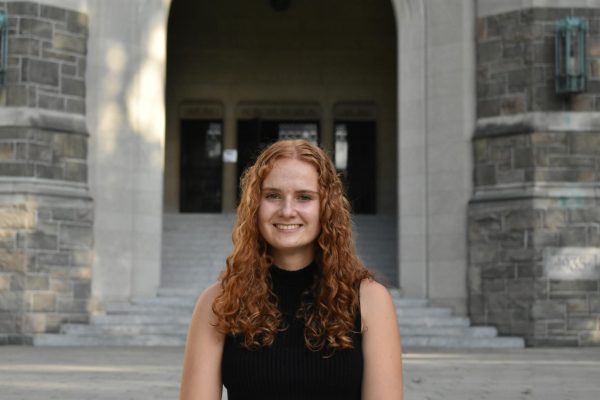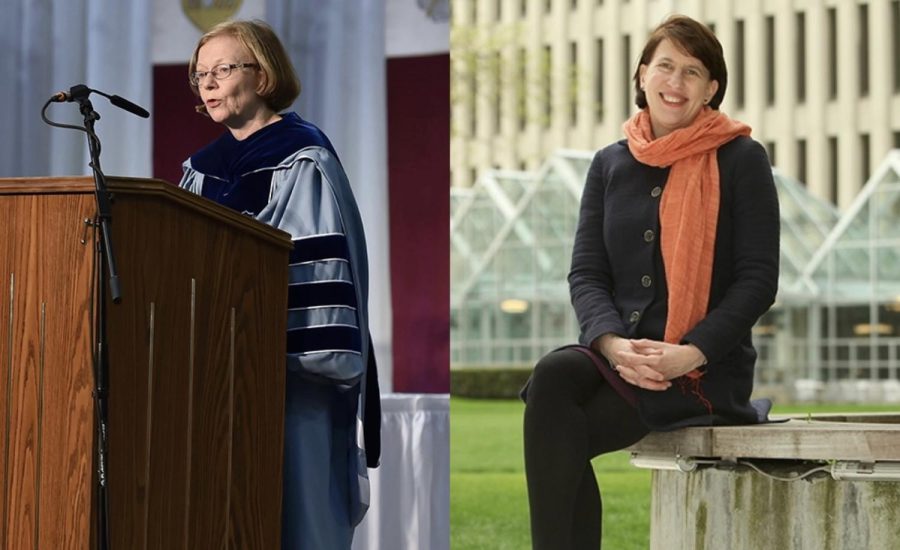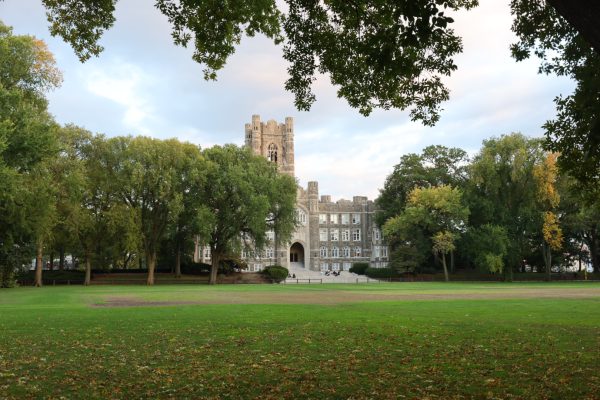Fordham Creates Task Force to Research Academic Advising
In March 2020 the Task Force on Undergraduate Academic Advising (TFUAA) was created by the deans of Fordham College at Rose Hill and Fordham College at Lincoln Center, Maura Mast and Laura Auricchio, to research the best way to conduct academic advising. The TFUAA looked at what Fordham students and faculty expected out of advising, as well as researched other academic institutions’ advising approaches.
According to Auricchio, by November 2021, the task force had completed their research. Following this, their findings were compiled into three potential advising models that could be implemented. All three models have a similar focus on developing an advising center. Auricchio noted that the center would have full-time, professional advising staff for students to utilize.
According to the official report, the first model creates a fully functioning advising center staffed with professional advisors and class deans. Each dean and advisor would be assigned a core cohort of students to advise. Faculty would then serve as major advisors. The second model also proposes an advising center with a staff that would serve a student’s primary advisors, but students would remain close with the faculty in their major’s department.
Points of contact for students in the major could possibly be faculty members and department heads. In this model, the advising team would work closely with department heads. The third model would keep the current model of advising but would include the introduction of an advising center that would function as a center of advising and oversee all of the other aspects of the program.
Throughout February 2022 and the first week of March, Mast and Auricchio collected feedback from the Fordham community about the three models. Based on the feedback they received, they will provide an official recommendation to the provost on how to go about academic advising.
“I want to emphasize that we’re not necessarily doing model one or model two or model three, we may end up with model 1.5 or 2.6. [The final system could be] something that draws from various models,” said Auricchio.
The use of an advising center is a recurring theme that the TFUAA noted in almost all the schools sampled.
“The notion that really came across [in the external investigation] was advising centers. The top 12 Association of Jesuit Colleges and Universities (AJCU) that [TFUAA] looked at, all have dedicated advising centers. Likewise, so did all the places where site visits were conducted,” said Auricchio.
The hope for advising centers is that they can provide a more centralized structure to advising: they provide a staff of professional advisors, who are trained to handle both personal and academic advising.
According to Auricchio, a big part of why an advising center would be helpful to students is because these advisors would be specially trained and equipped to deal with issues of inequity and racism. Mast and Auricchio both hope that the development of an advising center will help Fordham become more equitable and move it closer to it’s goal of eradicating racism.
“When I talked with students about [the new advising models], one student said that she’s first generation in college and she would have loved to have gone to an advisor who understood what it meant to be first generation,” said Mast. “This student said she would have loved to have been able to go to an advisor who was especially trained to work with first generation students or at least feel have someone to talk to who at least got part of what she was going through.”
Additionally, the advising center would aim to streamline and centralize advising. In the current advising model, it can be hard for students and faculty to know where to get answers to their questions.
“We don’t want students to be shuffled between support units with no main point of contact. We know that it is frustrating: students don’t get the right answers, it’s not coordinated and it may delay student’s path to graduation,” said Mast.
According to Mast, some academic departments have created a holistic and organized system for their academic advising. Other departments may leave the advising up to the individual faculty member, which can result in some faculty members feeling as though they have to “figure it out as they go along” and may not have a clear sense of where to go “when they don’t have the answers.”
No matter the chosen model, faculty members would still have a robust role in student mentorship.
“Whichever the model ends up being, there will always be in fact, we hope — strengthened opportunities for faculty and students to work together,” said Auricchio.
The impetus for the TFUAA was not to critique Fordham’s current advising model but rather to think about what the ideal and best system would be for Fordham undergraduate students.
According to Mast, the current academic advising system has evolved to wear over time. However, it has evolved reactively to address situations that have arisen over the years.
“Instead of building things piecemeal as we go along, this report is saying: ‘suppose we had to design something today with what students and faculty said they value and what we have learned from the scholarship of advising and the incredible work other institutions have done. How do we bring that all together for Fordham?’” said Mast.

Isabel Danzis is a senior from Bethesda, Md. She is double majoring in journalism and digital technologies and emerging media. The Ram has been a very...











































































































































































































